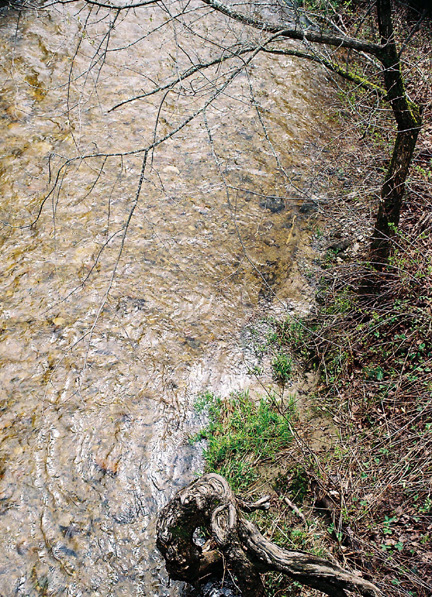
“And the tougher it gets
And the more that I sweat
And the harder it fights
And the deeper it bites
I’m one step closer to home;
And you can tie my hands
Or whip my back
I can’t give in
’til the sky turns black
I may get lost
I’m one step closer to home.”
~ The Alarm, One Step Closer to Home
An exploration of negation skates upon thin ice. The lowest strata, weighted to darkest depths, are opposed by lofty and liberating heights. Yet it remains for an earnest soul to comprehend spectra of the spirit. Navigating into the open seas of this new year brings me through straits that grapple with the old shoals of alienation. Knowing to steer such shores is essential. Terrain and tossing tides change constantly, emphasizing the critical value of compass accuracy. And thus there must be ways to manoeuver through the anguish of exclusion, en route to the vast embrace of oceans and horizons.
Belonging and acceptance, with their conditional properties, have haunted me since my earliest memories. Of late, it has pronouncedly surfaced how my self-perception has been tainted for too long by the black-sheep and bullied experiences of childhood, along with familial and social rejections of young adulthood. Coming to solid terms with a life’s course of a tacking outsider that never quite belongs does not mean resigning to the shadows. Not at all. It must mean exulting in disjointedness. But thriving along uncharted realms demands an urgency to deflate that lower, darker, defeatist nature that propels despair and bitterness. Throw it overboard.
For the voyage to really progress, the high road of positive growth cannot be delayed an additional moment. Take stock in the kindred, understanding souls you know, and count them among retrievable family members. As protracted and relentless as the journey may appear, our times are temporal. We hang our hats upon provisional hooks, and our season’s duration is unknown. Forever is something that defies cartographic description. One might justifiably say that dreaming and hoping are steeply priced, but I contend that stuffing-away and discarding hopes would be far more costly. While trying to discipline myself not to dwell upon dead-ends, I pondered the skills of how thoughts are squelched by those who busy themselves lest old hopes return to the fore. Perhaps this is what so many do with deposited longings left among inner recesses to decompose and blend into the mind’s depths- too far from the surface to be fished out. Then I wondered whether there is an appropriate age for the cessation of aspirations; it seems I’ve either missed that memorandum or blithely excluded it from my much more consequential messages.
Psalm 137 : Babylonic rivers
Consider the words of the exiled Psalmist who wrote:
“... they that wasted us
required of us mirth...
How shall we sing the Lord’s song
in a strange land?”
More than an indentured captive’s lament, these ancient words reveal a soul forced to produce. The rivers of Babylon, and their circumstances in the opening stanza, represent the inhospitable and unfamiliar. Quartered along the waterfront, the laborers found themselves without music in their midst, and sat on the ground, after hanging their harps on willow branches. But they were commanded to stand again, take their instruments from their hanging hooks, and deliver cheer to their captors. The heart of this somber psalm does not include any description of the work they had to do, but instead the pain of forcing joy out of sorrow. Surveying a hostile proximity has a numbing effect, but the emergence of memory brings the deluge. The psalmist and his companions wept when they remembered their lost homes. They had to sing joyous and sacred songs as strangers in an alien land. Although, as Matthew Henry once commented, “it argues a base and sordid spirit” on the part of the captors, it remained for the captives to sing beyond their anger and their expressed hunger for vindication.
Waters of Siloë
The Waters of Siloë, Thomas Merton’s history of the Trappist monastic order, contains instances of wavering between historiography and subtle autobiography. Contemporary readers are able to apply the benefit of retrospective knowledge about Merton’s life. His superior recognized the potential for Merton’s literary skills to draw popular attention to the monastery, and he set the young monk to publishing histories and translations, along with philosophical works. The results were phenomenal, with new postulants and fanmail flocking to Gethsemani Abbey. As for the dutiful Merton, the life of silent contemplation eluded him; the vocation which brought him to the monastery remained unfulfilled until his last years. While unable in good faith to disobey his order, Merton industriously delivered the goods- even adding the beautifully insightful works that continue to inspire. He found ways to sing the Lord’s song through his anguish, and occasionally his distress appears between the lines.
Providing a historic chronicle of Cistercian monasticism, beginning with the late 11th century, Merton describes the major leaders and communities from medieval Europe to foundations throughout the world. Amidst the general narrative of The Waters of Siloë is a thorough and sensitive portrait of an ordinary French monk named Maxime Carlier. Merton elaborates about how Carlier, called to a life of silent contemplation and monastic solitude, had been sent by his abbot to fight in World War I. Though chronologically impossible, one would think Merton knew Carlier personally by the book’s vivid comments about the latter’s spiritual life and intentions. Merton’s summaries of Carlier’s inner renewal reads remarkably like his own experience. Perhaps it was Merton joining Carlier, sensing that “somehow, I don’t know how it was, my soul entered upon a state in which all its desires seemed to be fulfilled. It enjoyed the delight of resting in a feeling of secret happiness.”
It seems Merton is speaking through his telling of Carlier’s life, expressing the inner torment of having to go to war and leave behind his heart’s vocation. Carlier’s troop even had to march past his own monastery, but he was not allowed to stop and see his brethren. At the close of the Carlier vignette, Merton describes a reckoning which may have been his own: what puzzles us as divine unkindness is actually the sacrifice asked of us en route to perfection. When we are kept away from our hopes and goals, we must continue to bear the cross and walk worthily of our calling. Carlier rescued many of his fellow soldiers, was decorated with the Croix de Guerre, and finally killed in action. Concluding, speaking his voice through his history writing, Merton adds: “then the veils of faith were suddenly shattered, and the noise of the world ended forever, as the Cistercian soldier entered into the sounding silence of a contemplation without obscurity and without end.”
The Cloud of Unknowing : being nowhere
The anonymous 14th century author of The Cloud of Unknowing set out to counsel novices in his community for whom spiritual life seemed arcane and frustrating. Among basic points of advice and encouragement, still applicable to this day, is the unusual exhortation to be nowhere. Strangers and pilgrims do well to set their hearts upon things above, and in so doing find their affections “transformed by the inner experience of nothing and nowhere.”
“But to this you say: ‘Where then shall I be? By your reckoning I am to be nowhere!’ Exactly. In fact, you have expressed it rather well, for I would indeed have you be nowhere. Why? Because nowhere, physically, is everywhere spiritually.”
Reconciling aspirations, accomplishments, and disappointments as one who is “nothing and nowhere” reminds the humbled sojourner of the liberating aspects of being both something and everywhere. “When your mind focuses on anything,” the author advises, “you are there in that place spiritually, as certainly as your body is located in a definite place right now.” He continues, “go on with this nothing, moved only by your love for God.” Tolerating- even thriving- amidst life’s setbacks seems a burdensome purgation, yet somehow a necessary darkness we must navigate through. The nothingness borne within an individual is a cloud of unknowing between humanity and divinity. From material nothingness comes spiritual plenitude: “For in this darkness we experience an intuitive understanding of everything material and spiritual without giving special attention to anything in particular.” The reward for patiently persevering through dark times is confidence about our own destiny.

one step closer
Though we are “compassed about with so great a cloud of witnesses,” the Epistle to the Hebrews equally offers reminders that the most prominent among our ancient forbears “confessed that they were strangers and pilgrims on the earth.” While trying to make sense of my abundant failings and occasional instances of acceptance, the best thing is to revel in the very alienation that oppressed so forcefully in the past. Similarly to the authors referenced in this essay, we move about in worlds as yet unrealized. Rejections far outnumber acceptances, but the wilderness of refusal must be traversed for the cause of gaining the pearl of affirmative. Strangers and pilgrims have the noblest of patron saints, as well as the strongest spines.
Let us be, at least, contentedly disjointed- bringing out the open-endedness and positive aspects of being perennially out-of-place. Instead of lucrative contracts, financial founts, or real estate, my chief assets begin with faith, wits, and oddness. The flip side of exclusion is the “nothing and nowhere” of the Cloud of Unknowing. Though not fully belonging anywhere, somehow part of many places. Moored by mere threads means mobilization toward improvement. Riches and recognition recede in importance, compared to the freedom to choose away from what is unproductive in favor of pursuing what is constructive and good. The voyage requires unrelenting vigilance, no matter how unsure prospects and opportunities appear. Comprehending how the blessed nothingness exceeds the world’s everything may require more than human faculties, therefore trust will have to suffice as a navigational instrument. “For myself,” wrote the anonymous author of Cloud of Unknowing, “I prefer to be lost in this nowhere, wrestling with this blind nothingness, than to be like some great lord going about everywhere and enjoying the world as if he owned it.” We may wonder what is really owned, and by whom.
















